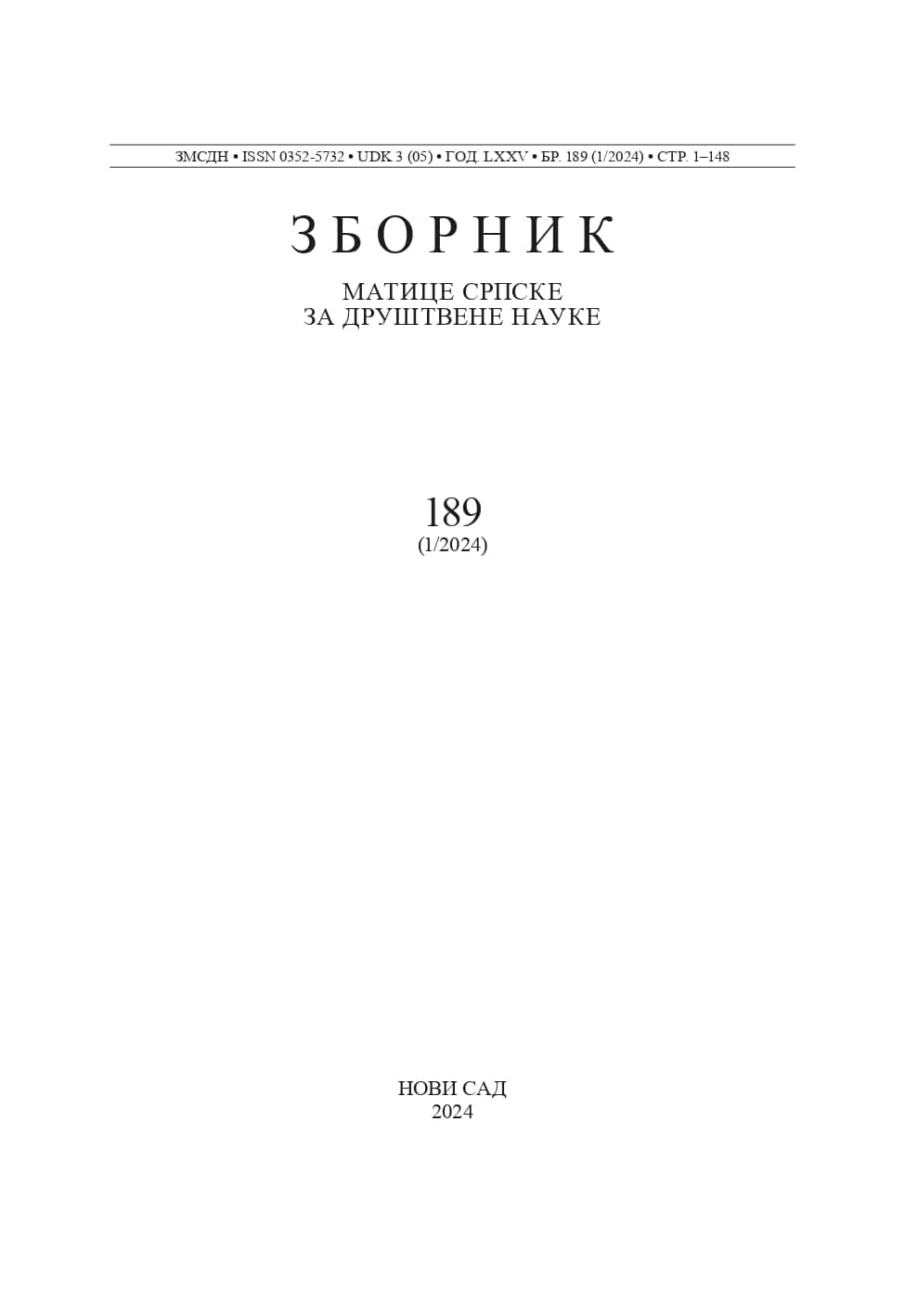ПОПИС СТАНОВНИШТВА У БОСНИ И ХЕРЦЕГОВИНИ: ИЗМЕЂУ ПОЛИТИЧКИХ ИНТЕРЕСА И НЕПОВОЉНИХ ДЕМОГРАФСКИХ ПРОЦЕСА
POPULATION CENSUS IN BOSNIA AND HERZEGOVINA: BETWEEN POLITICAL INTERESTS AND UNFAVORABLE DEMOGRAPHIC PROCESSES
Author(s): Mariana Lukić-Tanović, Draško MarinkovićSubject(s): Social Sciences, Geography, Regional studies, Human Geography, Sociology, Demography and human biology
Published by: Матица српска
Keywords: population census; Bosnia and Herzegovina; political interests; demographic processes
Summary/Abstract: The last population census in Bosnia and Herzegovina in 2013 is an extremely important report, not only for obvious reasons but also because it is the first census conducted after 22 years and the single census conducted in the 21st century so far. Although the 2013 census, like the previous one from 1991, was under the pressure of political events and interests at the time, it still allows an analysis of the number of inhabitants in a certain territory, as well as certain structural characteristics of the population. The consequences of the war in Bosnia and Herzegovina had a significant impact on the results of the census due to the migration of the population caused by the war, as well as due to war victims. The statistical system in Bosnia and Herzegovina is complex. Each entity has its own statistical office (Thе Institute for Statistics of Federation of Bosnia and Herzegovina and the Republic of Srpska Institute of Statistics). At the state level, there is the Agency for Statistics of Bosnia and Herzegovina (BHAS). The procedure of population census and data processing until the publication of the results was followed by a series of irregularities and issues. According to the final census results of the BHAS, Bosnia and Herzegovina had 3,531,159 inhabitants, Republic of Srpska 1,228,423 (or 1,170,342 according to the Republic of Srpska Institute of Statistics), Federation of Bosnia and Herzegovina 2,219,220 inhabitants, and Brčko District 83,516. Based on the results of the 2013 census, unfavorable demographic processes are evident – a decrease in the number of the population, the decreasing number of births, the increase in the number of deaths, the accelerated aging process, and the constant emigration of the young working-age and reproductive population. Depopulation processes have covered almost the entire territory of Bosnia and Herzegovina, thus in addition to the need for a new population census, the implementation of population policy is set as an imperative for political decision-makers. In most EU countries, the 2021 census has already been carried out, while in Bosnia and Herzegovina there is still no official proposal for a new population census, nor the census is included in the state budget for 2023. Although the population census is one of the most important sources of data that is needed for the realization of various socio-economic and development strategies, as well as scientific research, there is still not enough attention from the authorities in Bosnia and Herzegovina to put this issue on the agenda. Though the accurate data on the total and individual structures of the population is a prerequisite for European integration, it is evident that the new population census in Bosnia and Herzegovina will still be conducted when the state authorities decide to do so, more precisely – when opposite political views are brought together.
Journal: Зборник Матице српске за друштвене науке
- Issue Year: 2024
- Issue No: 189
- Page Range: 53-67
- Page Count: 15
- Language: Serbian

